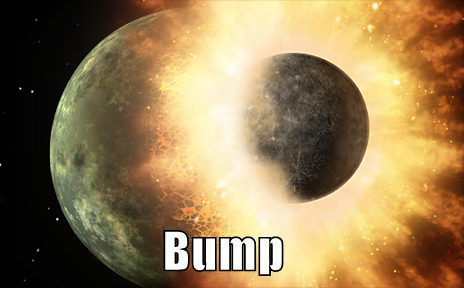Maybe we should start an "ask a chemist" thread.Geoff wrote:I've forgotten most of my chemistry, but I don't see how that would work - there would have been little or no free oxygen in the original accretion disc (mostly H and He, plus solids), and what there was would combine more readily with other elements (silicon, carbon, iron...) than with hydrogen.
The accretion disc is supposed to have formed from the relics of earlier supernovas and thus contained a smattering of heavier elements. Most of the disc was still H and He but those heavier elements that were present got sorted in such a way as to form the rocky planets (I remember there is a good explanation for this). Earth is actually around 45% oxygen; apart from the atmosphere and core most of the planet is dominated of oxygen compounds (predominant silicates). The little bit of Hydrogen that exists on our planet has efficiently bonded itself to any free O or C atom it can find. The free O in our current atmosphere is there curtsey of life on Earth; if all life went extinct tomorrow, free oxygen would eventually cease to exist on the planet.
Not sure if that answered the question.




